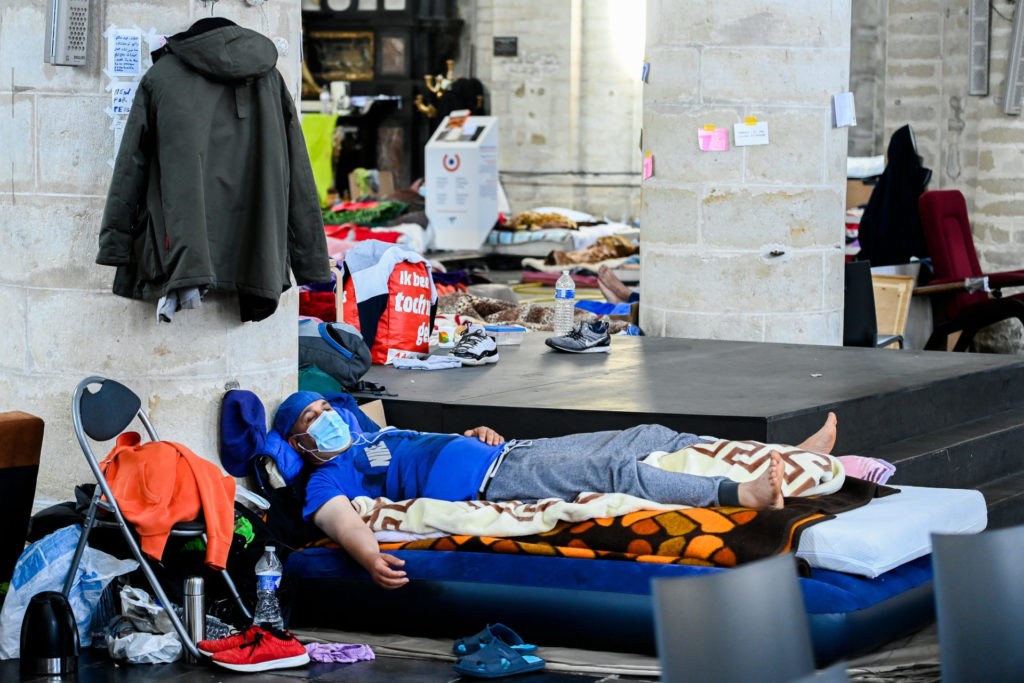The decision to allow for the swift processing of the files of the more than 400 undocumented migrants who had been on a hunger strike for almost two months has been defended by State Secretary for Asylum and Migration Sammy Mahdi.
After some 60 days, the activists decided to cease the hunger strike on Wednesday, at a point where their health had deteriorated dramatically, as they had been promised their cases would be reviewed at a quicker pace in the "neutral zone" set up by Mahdi to mitigate the situation.
"We have always dealt with priority target groups. If that is what we need to do to stop the hunger strike, then I am ready to do that," he declared in the Chamber on Friday, according to Belga news agency.
Mahdi, who has since the beginning stressed that the group would not be given collective regularisation - which is what they were on hunger strike for - reiterated that he has always been consistent in his communication with the hunger strikers and with the organisation representing them.
Related News
- End of hunger strike leaves political damage in its wake
- Undocumented migrants in Brussels to end hunger strike
Following the announcement on Wednesday, he had stressed that there would be no new instructions or policy changes for the group.
“I have had many meetings with them, to inform them about how we conduct policy. We made it clear to them that the policy will not change, and that they should realise that a hunger strike will not help,” Mahdi said.
However, the migrants will be assisted in a different way than other sans-papiers, as they will be helped in the neutral zone by the head of the independent federal administration office of the commissioner general for refugees and stateless persons (CGRA), Dirk Van den Bulck, who will guide the activists towards existing procedures.
Meanwhile, Mahdi announced on Friday that the neutral zone would be closed for the general public from Monday onwards, saying it "was set up to guide the hunger strikers to the existing procedures and to apply individually. However, there is no special treatment."
New political tensions created
In the last weeks, Mahdi found himself in the midst of the societal and political debate around the migrants’ situation for months.
Several of the government parties making up the Vivaldi Coalition, including CD&V, Open VLD, MR, as well as Prime Minister Alexander De Croo backed Mahdi’s stance to refuse giving collective regularisation to the group.
However, the left-wing block of the government, including French-speaking socialist party PS and green party Ecolo as well as Flemish-speaking ecologist party Groen, recently called on De Croo to take the case out of the hands of Mahdi.
On Monday, PS and Ecolo threatened to quit the federal government "within the hour" in case of a death, which would have resulted in the current government falling.
Although the announcement that the undocumented migrants would cease their action, for the time being, has subdued the previous political tensions, the news that the files will be dealt with quicker has resulted in the awakening of new turbulence.
According to right-wing opposition parties N-VA and Vlaams Belang, the hunger strikers are getting preferential treatment.
Theo Francken, the former State Secretary for Migration, stressed that they were receiving faster treatment of their cases and that they were treated differently to others because of the neutral zone.
"Your rant, for weeks now, was: 'We don't want to encourage the hunger strikers and don't want to give them preferential treatment. But you are now doing this in comparison with other people in illegality. This is a serious problem," Francken said.
He added that the "blackmail has to stop", and in response, urged for all hunger strikers to be blacklisted for regularisation from now on.

